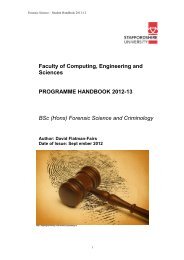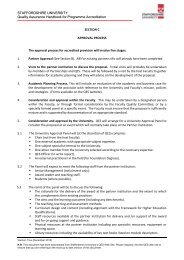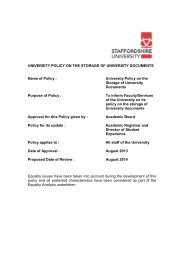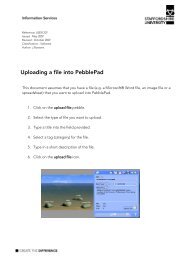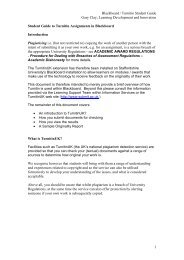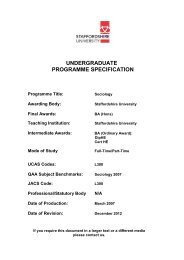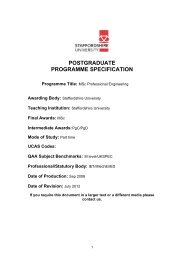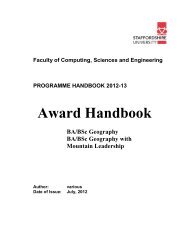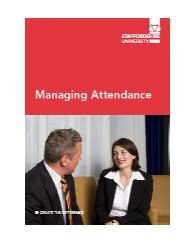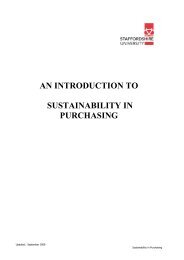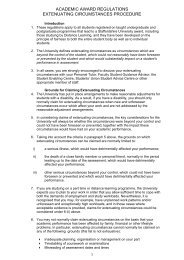DICE Project Final Report Resource Discovery Tools Evaluation and ...
DICE Project Final Report Resource Discovery Tools Evaluation and ...
DICE Project Final Report Resource Discovery Tools Evaluation and ...
Create successful ePaper yourself
Turn your PDF publications into a flip-book with our unique Google optimized e-Paper software.
<strong>DICE</strong> <strong>Final</strong> <strong>Report</strong><br />
STU3: The DEVIL should be embedded in any VLE or Portal because it will help a lot especially in an<br />
academic environment <strong>and</strong> it will be accessible.<br />
STU4: I think it would good to embed such services within my portal as this help me in gaining more<br />
knowledge about the resources available <strong>and</strong> also I am able to make my portal more useful for other.<br />
EDTECH2: Perhaps useful in very specific situations/courses<br />
EDTECH3: I think embedding such tools is a good idea so long as the learner is aware that there are<br />
other methods, <strong>and</strong> tools, out there - they don't have to just stick with those provided by their<br />
VLE/portal.<br />
EDTECH4: If I were to embed the services then it would be by using links to the tools. I do not have<br />
the ability to embed them deeper than this because I don’t have direct access to the VLE development<br />
code. My preference at the moment would be to provide links directly to selected targets because of<br />
some of the issues described elsewhere in this response.<br />
MAN3: Yes, Univ of Manchester is definitely intending to try this out. As you say, it’s not really proved<br />
whether this is worthwhile <strong>and</strong> this is what we’ll be looking at. It will essentially be another resource<br />
available in a course <strong>and</strong> may not get used – we’ll have to see. It’s a bit early to report back on this as<br />
yet. I would have thought this facility would be of some use though as one advantage of the VLE (in<br />
our case WebCT) is that course resources are brought together via the VLE. If the search facilities<br />
could be configured on a course by course basis then this could be even more useful though I suspect<br />
this isn’t possible.<br />
ACADEM3: Unfortunately I don't have much to offer on this except that next year this college is going to<br />
develop an HE range of courses where this type of resource may be more of use. Certainly none of the<br />
A level students I teach (ICT) would require this level of depth for their courses at the moment <strong>and</strong>,<br />
unless the search found held book or journal resources locally, students would not follow them up.<br />
STU5: Not relevant.<br />
8. Do you have comments to make on saving (formats) <strong>and</strong> re-using results?<br />
MAN1: It would be useful if searches could be saved in a very user-friendly way, with sufficient<br />
information to allow the user to identify what they have saved e.g. include the search term(s), date of<br />
search <strong>and</strong> results in a simple html form.<br />
MAN2: Q8: The capacity to save results from within a VLE or portal would be very useful, as it allows<br />
the user to move on from searching to actually using the results. The format should thus take into<br />
account potential use of the results.<br />
On re-using results, it would be good to search within the results where this is possible, as a way of<br />
narrowing down the search. It is also important to recognise where it is best to h<strong>and</strong> the user over to<br />
the host website, as it is not practical to reproduce all search functionality for many targets. This again<br />
might be determined by use.<br />
EDTECH1: Preferred DEVIL to D+, as the IMS saves did not work <strong>and</strong> the xml requires a style sheet to<br />
make the information easy to read. Perhaps a style sheet should be downloaded at the same time as<br />
the xml? DEVIL had a better choice with saving with the use of html, doc, pdf <strong>and</strong> xml. You could also<br />
select which items you wanted to save rather than being forced to save the entire result set.<br />
ACADEM1: Saving proved quite easy<br />
STU1: The ability to save <strong>and</strong> re-use results is useful in research. There is no real point in just saving<br />
the results from a simple search term, like PubMed <strong>and</strong> devil allow, it would be ideal being able to<br />
select <strong>and</strong> sort the results the user wishes to save. The ability to save in a text format is also very<br />
useful to avoid having to type out reference lists.<br />
STU2: This would be definitely be useful if it is being used in VLE<br />
ACADEM2: The ability to save the search results is very useful, but when it came to accessing them<br />
again I found the xml format not very user-friendly Perhaps its being a mere librarian <strong>and</strong> not very<br />
computer literate, but I found it easier to do my usual copy <strong>and</strong> paste into Word any results I wanted to<br />
keep.<br />
62




